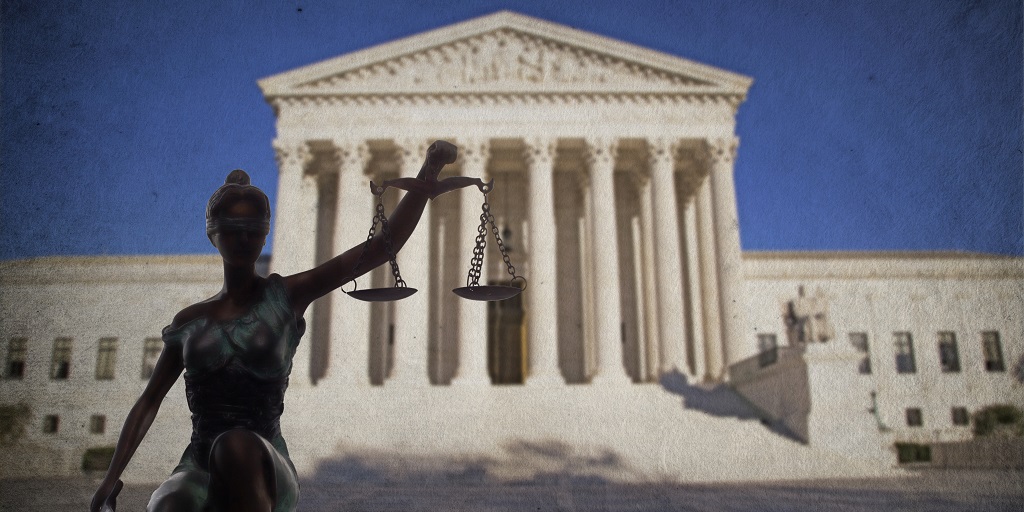The Supreme Court will tackle more hot button immigration issues in its 2022 – 2023 term. Front and center is the Biden administration’s effort to set immigration enforcement priorities. But the Court will also consider what a noncitizen must do to get federal court review of immigration court decisions. It may also accept review of more immigration cases before the term is up.
United States v. Texas
The Supreme Court heard oral argument this week in United States v. Texas, the lawsuit brought by Texas and Louisiana attacking the immigration enforcement guidelines issued by Department of Homeland Security (DHS) Secretary Alejandro Mayorkas in September 2021. A federal court in Texas vacated the guidelines nationwide—a decision upheld by a court of appeals.
United States v. Texas requires the Court to weigh in once again into a policy dispute between Texas and other states and the Biden administration. It calls into question the federal government’s authority to exercise prosecutorial discretion—the right to decide who to arrest and remove. As former DHS officials argue, for decades—across Democratic and Republican administrations—written priorities have been essential for effective immigration enforcement.
The Court will consider three key questions:
1. When can a state challenge a federal immigration policy in court? In other words, does Texas even have a right to bring this case?
To bring the lawsuit, the states have to show that the enforcement priorities have harmed them in some way. Texas says the policy has harmed it because (according to Texas) the enforcement priorities will increase its population of noncitizens. Spending money on noncitizen residents, Texas argues, hurts Texas.
The federal government says Texas is just speculating that the priorities will increase its noncitizen population. The enforcement priorities do not call for less enforcement—only guided enforcement.
Advocates argue that Texas’ dislike of supporting its noncitizen residents is discriminatory and should not give it the right to sue.
During oral argument, some of the Justices expressed doubt that Texas had shown enough harm. How the Court lands on this important question may shape the future of state lawsuits designed to challenge federal immigration policy.
2. Do the enforcement priorities violate immigration law?
The next question the Justices must consider is whether the immigration enforcement policy is illegal. Texas and Louisiana argue that immigration law requires the federal government to arrest and detain all noncitizens with certain criminal convictions or orders of removal. According to the states, the guidelines impermissibly limit who U.S. Immigration and Customs Enforcement (ICE) will arrest.
The federal government argues that immigration law only requires the detention of certain categories of noncitizens if ICE has already decided to pursue their deportation. If ICE exercises its prosecutorial discretion not to pursue removal, it need not (and should not) detain the person. Moreover, the government argues, it does not have the resources to arrest all removable noncitizens.
The Justices pressed both sides on this issue, but Justices Sotomayor and Brown Jackson seemed most convinced that the immigration statute does not limit DHS’ prosecutorial discretion to decide whether to arrest and seek removal of particular noncitizens.
3. If the policy is illegal, did the lower court have the power to set aside the policy nationwide?
This last question follows the Supreme Court’s recent decision in Garland v. Aleman Gonzalez. That decision prohibits lower courts from entering an injunction that instructs federal immigration officials to act in a specific way regarding law that governs “inspection, apprehension, examination, and removal . . .”
The Supreme Court will have to decide whether the lower court’s decision violates Aleman Gonzalez and the Administrative Procedure Act. The outcome may determine the powers of lower courts to remedy the government’s illegal immigration policies and practices.
Santos-Zacaria v. Garland
The Court will hear argument on January 17, 2023 in Santos-Zacaria v. Garland. The case asks what steps a noncitizen must take to have their immigration court proceedings reviewed by a federal court of appeals.
Immigration courts are high volume administrative courts making life or death decisions. One prominent immigration judge describes them as “death penalty cases heard in traffic court settings.” Immigration judges often make mistakes. Federal court review is essential. But immigration law creates hurdles to that review.
One requirement is that the noncitizen—who often does not have a lawyer—cannot raise new legal arguments before the federal appeals court. They must make all legal arguments in front of the administrative appeals court—the Board of Immigration Appeals (BIA)—before they can make them in federal court.
In Santos-Zacaria, the Court will consider two questions: (1) whether a noncitizen’s failure to make a legal argument before the BIA completely bars them from raising the argument at the federal court of appeals, or if the court of appeals can waive that requirement; and (2) when the BIA makes a new mistake (different from the mistakes made by the immigration judge), does the noncitizen have to file another motion in front of the BIA or can they go straight to the court of appeals.
The outcome of this case has the potential to make it even more difficult for noncitizens to appeal their decisions—and for the overburdened BIA to process cases—or it may remove hurdles to a fair review process.
Given the issues pending before it, the Supreme Court will continue to play a significant role in shaping U.S. immigration law and policy. In addition to United States v. Texas and Santos-Zacaria v. Garland, the Court is still considering whether to take on other immigration cases that touch on issues such as federal court review, the immigration consequences of certain criminal convictions, and the constitutionality of a federal statute that criminalizes encouraging unlawful immigration.






